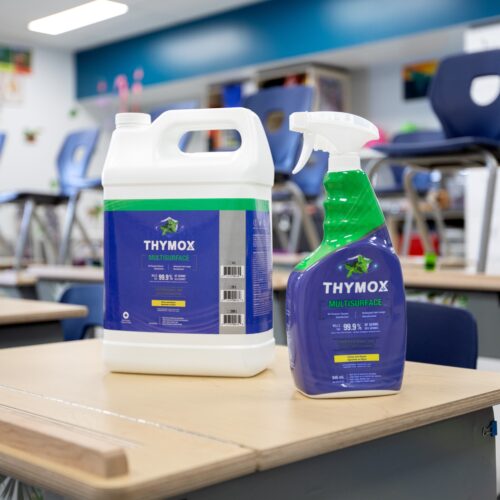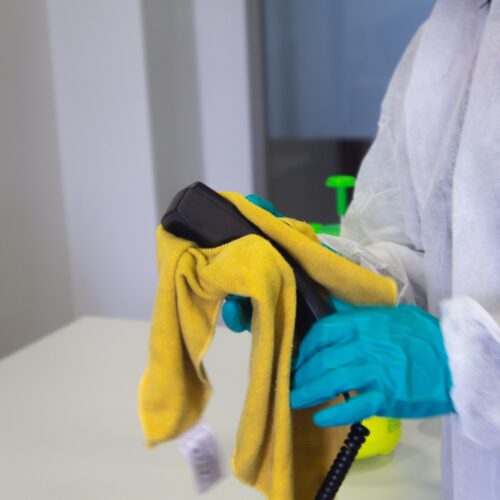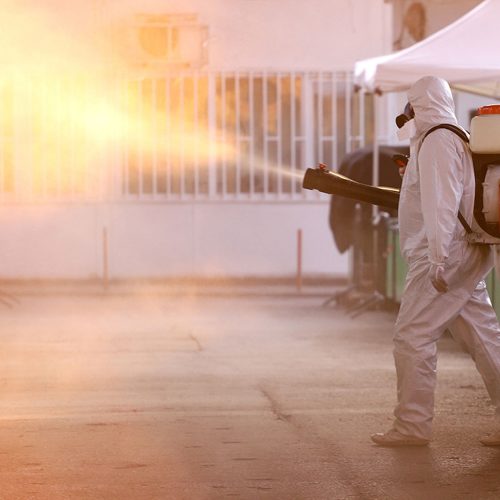August 17th, 2020 | Infection Control
Cleaning and hygiene is finally getting the attention that it so rightly deserves.
For decades, we have given very little attention to diseases and the hygiene standards of other countries. Developed nations have felt a certain sense of immunity due to the advance of medicine and medical facilities. Now, the coronavirus pandemic has shown us just how rapidly millions of people across the globe can be infected with a deadly virus. Close person-to-person contact helped spread the SARS-CoV-2 virus, multiple other factors played a role, including inadequate cleaning of surfaces, a lack of hand hygiene, sick people traveling and interacting with others and slow responses by country governments.
The virus has been transmitted in a variety of ways and can survive on surfaces for extended periods of time, making thorough and frequent cleaning with the right chemicals, tools and equipment an essential part of preventing the spread of SARS-CoV-2. In previous times, the standards of cleaning have dipped to a level where public places such as public toilets and even stadiums, train stations and public parks were just expected to be dirty. Now, Organizations must meet new standards for public health practices, including a new standard of cleanliness to make customers and workers and the general public, confident in the safety of their facilities. We are slowly learning that hygiene isn’t just for hospitals, it affects everyone.
Faced with a highly contagious virus, businesses, government departments, schools, councils and cleaning professionals, are working extremely hard to adjust to a new standard of hygiene. Before the pandemic, cleaning was necessary, but wasn’t always viewed as essential for saving lives. For example, The seating and high touch points in public transport were only cleaned every 6 months at best. This is now a weekly process at the very least. As more facilities and services reopen and encourage people to visit, a clear and different approach to cleanliness is required. Gone are the days of “good enough” and simply cleaning for appearance. Employees and customers now demand more.
Steps organizations can take to make customers and employees feel safer include:
Providing alcohol-based hand sanitiser
Hand hygiene is extremely important for curbing the spread of pathogens. While handwashing typically occurs within restrooms, facilities can promote hand hygiene throughout a facility by installing hand sanitizer dispensers. These may be freestanding stations or attached to walls near entrances, elevators, self-checkout registers and restrooms. As well as this, staff in shared offices should be provided with a personal 100ml hand sanitiser to keep on their desk. Staff members that travel for work, should be provided with a personal 100ml hand sanitiser, these staff members could be sales representatives, estate agents, delivery drivers etc.
Using approved disinfectants
Choose disinfectants that are safe for workers, are safe for use in food areas and are approved by the Therapeutic Goods Administration (TGA) or the Environmental Protection Authority (EPA), for use against SARS-CoV-2. Look for disinfectants that have short contact times to ensure germs are killed. Use a product like Kwiksan to regularly disinfect surfaces that are sensitive to being cleaned with water but are frequently touched. These include phones, eftpos machines, keyboards etc.
Making cleaning more visible
Until now, cleaning has been kept in the area of “out of sight, out of mind”. However, now that we are realising the importance of cleaning and hygiene, customers want to see that we are fulfilling our requirements. Cleaning while customers are present demonstrates an organization’s commitment to cleanliness and safety. While the practice of day cleaning is not new, it is more prevalent now that businesses are cleaning more frequently. Make sure that employees use the proper products, tools and processes, as facility occupants will be even more vigilant about observing cleaning and disinfecting. It is also more critical that ever to ensure that applicator bottles are labelled correctly and that chemicals are not left in places that can accessed by children.
Giving guests control over disinfecting
Making disinfecting wipes or alcohol disinfectant spray such as Kwiksan readily available, provides guests an even greater sense that your organisation is doing its best to keep people healthy. Install stations in dining rooms and areas where shopping carts and grocery baskets reside so customers have control over the cleanliness of the items they touch. To reduce the risk of irritating skin and eyes, choose safe disinfectant wipes that are gentle on people and surfaces, but tough on pathogens. Wipes like the Biosan II Wipes are also safe to use in food areas and will not taint the taste of food items that come into contact with surfaces cleaned using them.
Communicating cleaning efforts
Customers and employees want to feel safe. Develop a thorough internal communications plan, notifying workers of new cleaning measures. Educate customers on your disinfecting strategies. Do so using e-newsletters, social media updates and signage. When employees understand your approach, they can also confidently communicate it to customers. Be sure to promote that you are using recommended and safe products and highlight cleaning frequency.
This pandemic has created widespread awareness about the role of cleaning in preventing the spread of infections. At a time when people are fearful to enter facilities and interact with others in close quarters, businesses must adopt new methods of cleaning. The visible process of cleaning instills confidence while removing invisible pathogens. Implementing the above recommendations will demonstrate to customers and employees that their health and safety is a top priority.
Actichem can help you create the safest environment for your associates and customers. Contact Actichem on 1800 108 800 or speak with your Actichem representative regarding proper cleaning and disinfecting products and procedures.

Step into the future of disinfection with the game-changing “Introducing Thymox” Webinar. Discover Thymox, a versatile hospital-grade disinfectant that redefines [...]
Read more
Effective Gastro Outbreak Cleanup with Actichem Gastrointestinal outbreaks can strike unexpectedly, whether in a household, daycare centre, school, or even [...]
Read more
The definitive guide to trauma and biohazard cleanup. Trauma & Bio-Hazard Remediation covers several areas including Crime Scenes, Hoarders clean-ups, [...]
Read more
Why is Biosan II the best product on the market for fogging applications, and how do I use it to [...]
Read more